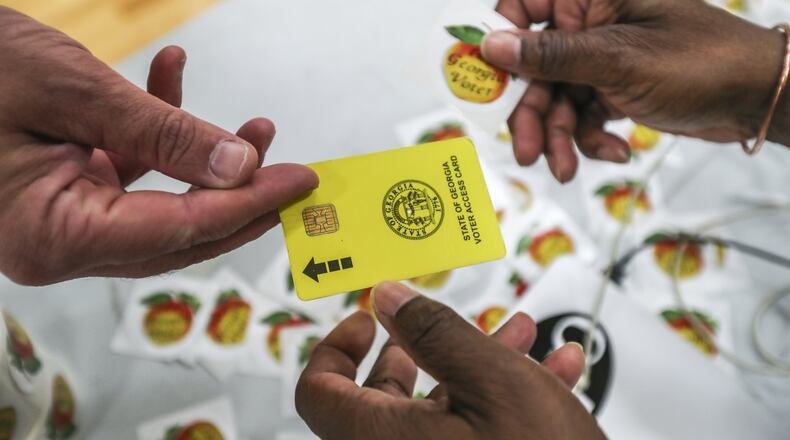A federal judge ruled that requiring postage on mailed absentee ballots for the June primary is not an unconstitutional poll tax on Georgia voters, but she said she will consider changes in future elections.
U.S. District Judge Amy Totenberg said that removing the postage requirement would be difficult for the state to implement so close to the June 9 primary and confusing to voters who had already received their absentee ballots.
The lawsuit by Black Voters Matter, a group founded in 2016 to increase African American voter registration and turnout, sued Secretary of State Brad Raffersperger after postage was not included.
The group asked the judge to rule that the cost of voting by mail creates a barrier for those unwilling to risk buying stamps or voting in person during the coronavirus pandemic. Attorneys for Raffensperger said the cost of a stamp won’t stop anyone from voting.
Attorneys for the organization suggested the state include postage stamps or business reply mail stickers, establish a website where voters could request a paid return envelope or place a secure drop box location at every post office in the state.
Totenberg said she will consider whether the state should waive the postage requirement in future elections.
“The court believes that plaintiffs’ original request for … relief, requiring prepaid return envelopes for all absentee ballot applications and mail-in absentee ballots, presents an important question necessitating prompt review,” Totenberg wrote in her order.
Unprecedented numbers of Georgia voters plan to cast their ballots by mail in the primary, avoiding the risk of catching the coronavirus at in-person voting locations.
Raffensperger mailed absentee ballot request forms to the state's 6.9 million active voters. More than 1 million of them had already returned those requests through Thursday, Raffensperger said.
Voters can mail their absentee ballots, hand them in at precincts or insert them into drop boxes available in some counties. In addition, the U.S. Postal Service has said it will deliver ballots without stamps, even though ballot envelopes tell voters to use postage.
In-person voting locations must also remain open, both during three weeks of early voting and on election day, according to state law.
About the Author
Keep Reading
The Latest
Featured




